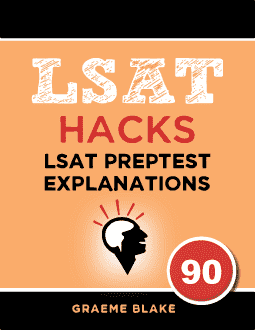DISCUSSION: We’re asked to find a common central purpose for both the passages. What do the two passages have in common? They’re angry. In passage A, Ricks hates Rosenthal, and argues bitterly against her. In B, Kewes is a bit nicer, but still spends the whole passage criticizing Ricks. The common factor in each passage is that the author criticizes someone and their approach.
___________
- Neither passage trace the development of historical plagiarism.
To some extent both authors discuss Rosenthal’s “anything goes!” approach to plagiarism, but neither author talks about how this approach began. - CORRECT. Ricks say the historical approach of postmodern scholarship is bad. Kewes says that Ricks’ approach to scholarship is bad. See the second half of paragraph 2 and of paragraph 3. Ricks’ view is that plagiarism is wrong, whereas Kewes points out that people in the past would have had different perspectives. They wouldn’t have shared Rosenthal’s view, but nor would they have shared Ricks’ view.
- This answer, properly understood, has nothing to do with the passages. Your job isn’t to prove answers right, and you shouldn’t twist answers into fitting the passage.
What does this answer mean? If you’re examining shifting attitudes, you necessarily must examine multiple attitudes, over time. But passage A only discusses one scholar, Rosenthal, and passage B only discusses Ricks, and his critique of Rosenthal.
In passage B, Kewes certainly mentions that attitudes shifted, but she is talking about the attitudes of people at the time, not scholars. And she hardly mentions how attitudes shifted, she only mentions that they did.
For this answer to be right we’d need the passages to examine at least 3-4 different scholars, across different time periods. Everyone mentioned in the passages is alive today! Same time period.
Example of examining shifting scholarly attitudes: In the 1800s scholars thought plagiarism was awful. In the 1900s scholars thought it was ok. In the 2000s scholars switched back and decided plagiarism was bad again. - Ricks suggests that postmodern scholarship has become influential, but he doesn’t say why. Kewes doesn’t even seem to think any approach is unduly dominant, so she can’t even begin to get into why.
- Ricks certainly argues that Rosenthal’s book is problematic, so that fits. What about passage B? Kewes is arguing against Ricks’ essay, which automatically disqualifies this answer. Ricks didn’t write a book! If you missed this info, it’s int he italicized text above Passage A.


Leave a Reply